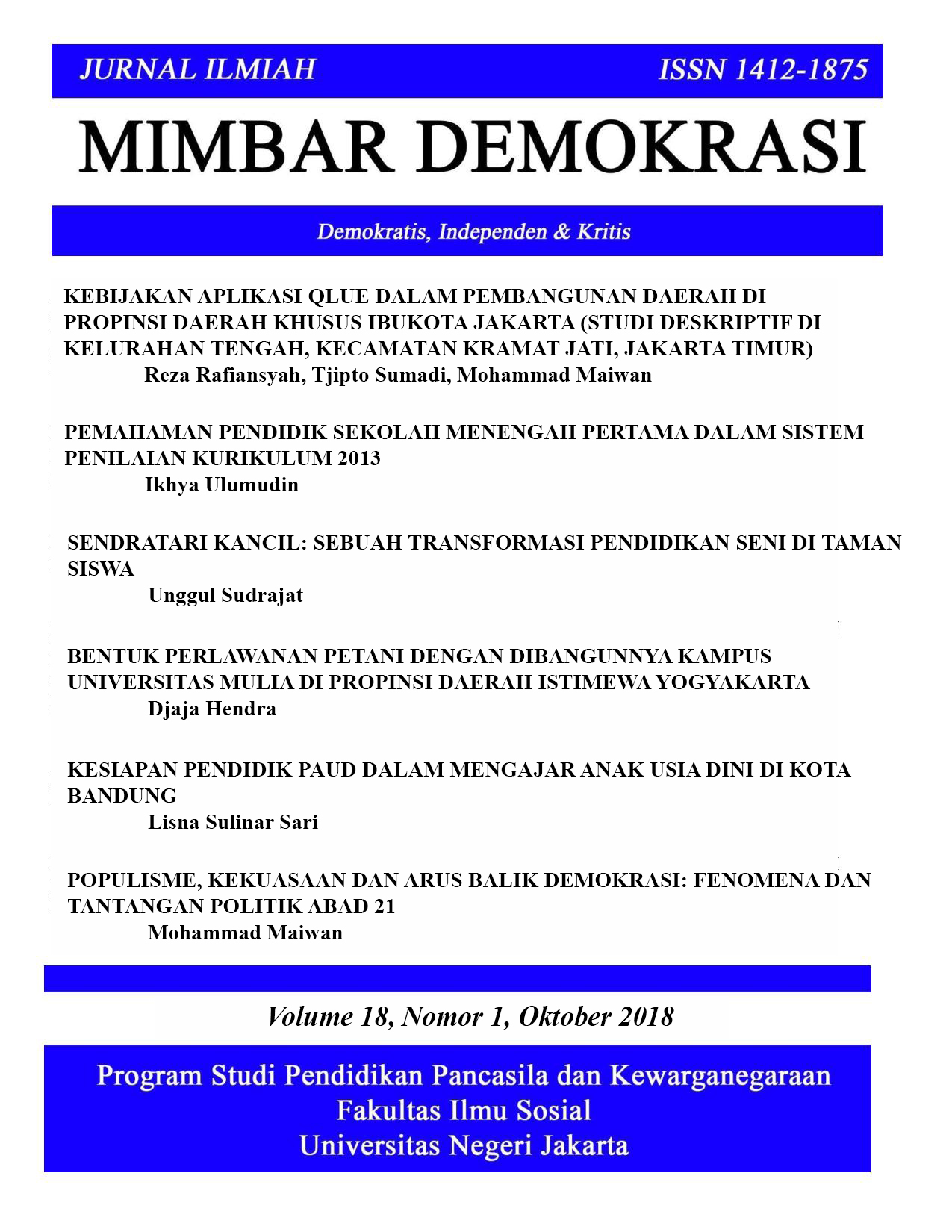KEBIJAKAN APLIKASI QLUE DALAM PEMBANGUNAN DAERAH DI PROPINSI DAERAH KHUSUS IBUKOTA JAKARTA (STUDI DESKRIPTIF DI KELURAHAN TENGAH, KECAMATAN KRAMAT JATI, JAKARTA TIMUR)
DOI:
https://doi.org/10.21009/jimd.v18i1.9250Keywords:
Public Policy, Qlue Application, Regional DevelopmentAbstract
This research is encouraged by the rejection of Jakarta Government Policy which requires the Head of Neighborhood Association (RT) and Community Association (RW) to use Qlue Application in helping the government to overcome the City problem. Research method used is descriptive method within qualitative approach. The informants in this research are Heads of RT and RW. Key Informants are Head of Administrative Village, Governmental Peace of Order Section, and Economic Development Section at Kelurahan Tengah. The results of the research show that Application of Qlue Application Policy has been running well. This is seen from the fulfillment of Evaluation Indicators of the effectiveness, efficiency, adequacy and responsiveness. While the Impact of Development is caused by the Report of City Problems that encourages the creation of Regional Development which is seen from the improvement of service, the development, empowerment, and the participation of citizens in following up the Qlue report.








